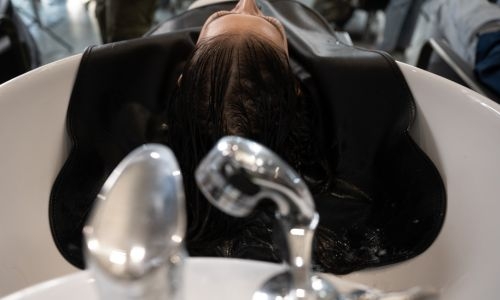A young woman in her twenties was recently awarded compensation of 300 dinars after a salon damaged her hair during a dye job and protein treatment. The case was heard in the Fourth Civil Court of First Instance, where lawyer Shrefa Bouaraki represented the woman. The woman had initially visited the salon to dye her hair, but was advised to return for a protein treatment a week later. Despite her concerns about potential damage from the treatment, the salon employee reassured her that there was no need to worry.
During the protein treatment, which lasted over 11 hours, the woman experienced burning sensations on her scalp and eyes. After washing her hair, it was revealed that her hair was significantly damaged and her face had burns, in addition to a color change in her hair. The woman expressed her disappointment, saying, “I was so excited to get my hair done, but it turned into a nightmare.”
Initially, the salon owner promised to resolve the issue amicably and compensate the woman. However, when the salon failed to fulfill their promise, the woman decided to file a lawsuit seeking compensation for the damage caused. The court ruled in favor of the woman, attributing the hair damage to the salon employee’s negligence in applying the protein treatment for an excessive duration.
Recognizing the emotional distress caused to the woman, the court awarded her 300 dinars in compensation. This amount was deemed sufficient to address the symbolic nature of the damage and provide the woman with a sense of justice. The case serves as a reminder for salon owners and employees to exercise caution and responsibility when handling hair treatments, ensuring the safety and well-being of their customers.
In conclusion, the woman’s ordeal at the salon highlights the importance of proper training and professionalism in the beauty industry. Customers trust salons to enhance their appearance, not cause harm. It is crucial for salons to prioritize the safety and satisfaction of their clients by following best practices and adhering to industry regulations. This case serves as a cautionary tale for both salon owners and customers, emphasizing the need for clear communication, informed consent, and accountability in all beauty procedures. By learning from such incidents and taking preventive measures, salons can uphold their reputation and ensure that their customers leave satisfied and happy with their services.











